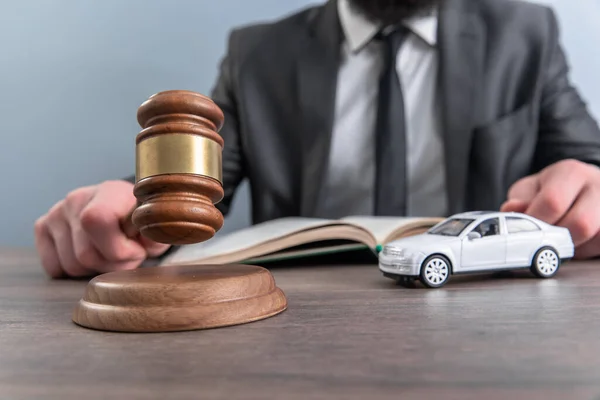California Used Car Lemon Law: How To Claim Your Rights Against Defective Cars
California has some of the strongest consumer protection laws in the United States, and the California Lemon Law is one of them. This law is designed to help buyers who have purchased defective vehicles. Whether it's a new or used car, the Lemon Law protects consumers from the financial burden of repairing a vehicle that consistently fails to meet standards of quality and performance. In this article, we'll explore how California’s Used Car Lemon Law works, the steps you can take to claim your rights, and what remedies are available if you end up with a "lemon."
What Is the California Used Car Lemon Law?
The California Lemon Law, officially known as the Song-Beverly Consumer Warranty Act, was initially designed to protect new car buyers but was extended to cover used vehicles under specific conditions. In essence, it provides a legal framework for consumers to pursue compensation or replacement if their vehicle has defects that cannot be fixed after a reasonable number of attempts.
Criteria for Qualifying Under California Lemon Law
For a used car to qualify under the Lemon Law, several conditions must be met:
- Vehicle Warranty: The car must still be covered under the manufacturer’s original warranty or come with a dealership-issued warranty. Extended warranties or service contracts can sometimes be considered, but they may not always guarantee coverage.
- Substantial Defects: The defects must affect the vehicle’s safety, value, or use. Minor issues, like cosmetic blemishes, do not usually qualify.
- Reasonable Repair Attempts: The dealership or manufacturer must be given a “reasonable” number of chances to repair the defect. While "reasonable" is not strictly defined, typically three to four repair attempts for the same issue may qualify the vehicle for a Lemon Law claim.
- Time Frame: The vehicle must have experienced these issues within a certain period of time or mileage. Usually, the problem must have arisen within 18 months of the car's purchase or within 18,000 miles, whichever comes first.
What to Do If You Think You Have a Lemon
If you suspect that your used car may qualify under the Lemon Law, it's crucial to follow specific steps to ensure your rights are protected.
Keep Detailed Records
Documentation is key. Keep thorough records of every repair attempt, including the dates, descriptions of the issues, and what repairs were done. Make sure you get copies of any work orders or invoices from the mechanic or dealership. These documents will serve as vital evidence if you need to pursue a claim.

Notify the Manufacturer or Dealership
Before you can pursue legal remedies, you must notify the manufacturer or dealership of the ongoing issue. It's important to provide them with a written notice detailing the problem and outlining how it has not been adequately repaired. This gives them one last chance to fix the defect before further action is taken.
Allow Reasonable Repair Attempts
The manufacturer or dealership must be given multiple opportunities to correct the issue. However, there is a limit to how many attempts are considered "reasonable." If the problem persists after several repair attempts, or if the issue is serious enough that it could endanger the driver’s safety (like brake or steering failures), you may have grounds for a claim under the Lemon Law.
Filing a Lemon Law Claim
If the defect remains unresolved, and you believe your car qualifies as a lemon, you can initiate a Lemon Law claim. Here's how the process typically unfolds:
Contact an Attorney
Although it's not always necessary, having an experienced Lemon Law attorney can be immensely helpful. They can help you navigate the complexities of the law and advocate on your behalf, potentially increasing your chances of a successful outcome. Many attorneys offer free consultations and only collect fees if you win your case.
Submit Your Claim
Once you’ve gathered all the necessary documentation and attempted to resolve the issue with the dealership or manufacturer, it’s time to submit a formal claim. The process usually involves submitting a demand letter and supporting documents, such as repair records and communications with the dealer.

Manufacturer’s Response
The manufacturer will typically investigate your claim once it's submitted. They may offer a settlement, such as repurchasing the vehicle or replacing it with a comparable model. In some cases, they might dispute the claim, in which case you and your attorney may need to go to arbitration or court to resolve the issue.
Remedies Available Under the California Lemon Law
If your claim is successful, there are several potential remedies available under California's Lemon Law:
Repurchase of the Vehicle
One of the most common outcomes is that the manufacturer repurchases the defective vehicle. This includes refunding the buyer’s down payment, monthly payments made, registration fees, and other costs. The manufacturer may deduct a "usage fee" based on the mileage the vehicle had when the problem first occurred.
Replacement Vehicle
Another option is a replacement vehicle of similar make and model. This is often preferred if the buyer is still interested in keeping the same type of car. The manufacturer is required to cover the cost difference if the replacement vehicle is more expensive than the defective one.
Attorney’s Fees
In many cases, the manufacturer is required to cover the consumer's attorney fees. This makes it easier for individuals to pursue a Lemon Law claim without worrying about the financial burden of legal costs.
Exceptions and Limitations
While the California Lemon Law is robust, there are some important exceptions and limitations to be aware of:
- Private Sellers: Cars bought from private individuals, as opposed to licensed dealers, are generally not covered under the Lemon Law.
- Out of Warranty: If the vehicle is no longer under the manufacturer’s warranty or a dealership warranty, it likely won’t be covered.
- Minor Defects: The defect must substantially affect the vehicle's use, safety, or value. Superficial problems like cosmetic damage do not qualify.
4655 Cass St, San Diego, CA 92109, United States.
Phone: +1 619-795-9430

